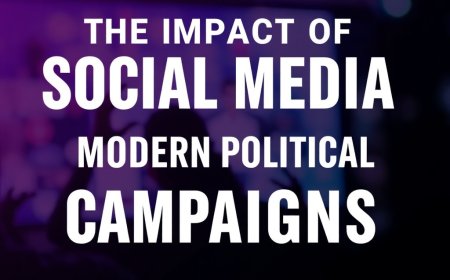How Political Campaigns Use Data Analytics

Political campaigns have evolved significantly over the years, with data analytics playing a crucial role in shaping their strategies and decision-making processes. By leveraging data analytics tools and techniques, political candidates and parties can gain valuable insights into voter behavior, preferences, and sentiments, allowing them to tailor their messages and campaign efforts more effectively. In this blog post, we will explore how political campaigns use data analytics to optimize their election strategies, target voters efficiently, and enhance their digital marketing efforts.
One of the key ways in which political campaigns use data analytics is through voter targeting. By analyzing demographic data, voter registration information, and past voting behavior, campaigns can identify key voter segments and tailor their messages to resonate with specific groups. This targeted approach allows campaigns to allocate resources more efficiently and focus on engaging with voters who are most likely to support their candidate.
Data analytics also plays a crucial role in shaping election strategy. By analyzing polling data, social media trends, and other relevant information, campaigns can identify emerging issues, track public sentiment, and adapt their messaging and campaign tactics accordingly. This data-driven approach enables campaigns to stay agile and responsive in a fast-paced political landscape, ultimately increasing their chances of success on election day.
In addition to voter targeting and election strategy, data analytics is also used to enhance digital marketing efforts. Political campaigns leverage data analytics tools to track the performance of online ads, social media campaigns, and email marketing initiatives. By analyzing key metrics such as click-through rates, conversion rates, and engagement levels, campaigns can optimize their digital marketing strategy in real-time, ensuring that they reach the right audience with the right message at the right time.
Furthermore, data analytics enables political campaigns to measure the effectiveness of their campaign efforts and make data-driven decisions. By tracking key performance indicators, such as voter turnout, fundraising success, and overall campaign engagement, campaigns can assess the impact of their strategies and tactics and make adjustments as needed. This iterative approach allows campaigns to continuously improve and refine their tactics throughout the election cycle.
In conclusion, data analytics has become an indispensable tool for political campaigns looking to optimize their election strategies, target voters effectively, and enhance their digital marketing efforts. By leveraging data-driven insights and analytics tools, campaigns can gain a competitive edge in a crowded political landscape and increase their chances of success on election day.


















